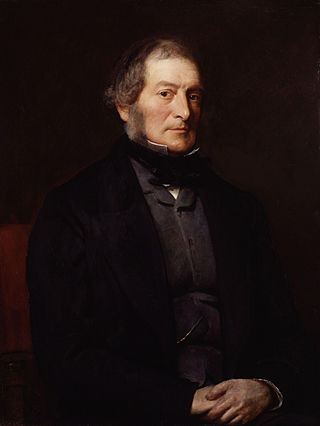The General Certificate of Secondary Education (GCSE) is an academic qualification in a range of subjects taken in England, Wales, and Northern Ireland, having been introduced in September 1986 and its first exams taken in 1988. Public schools in Scotland use the Scottish Qualifications Certificate instead. However, private schools in Scotland often choose to follow the English GCSE system.

St Paul's School is a selective independent day school for boys aged 13–18, founded in 1509 by John Colet and located on a 43-acre site by the Thames in London.

AQA Education, trading as AQA, is an awarding body in England, Wales and Northern Ireland. It compiles specifications and holds examinations in various subjects at GCSE, AS and A Level and offers vocational qualifications. AQA is a registered charity and independent of the government. However, its qualifications and exam syllabi are regulated by the Government of the United Kingdom, which is the regulator for the public examinations system in England and Wales.

The International General Certificate of Secondary Education (IGCSE) is an English language based secondary qualification similar to the GCSE and is recognised in the United Kingdom as being equivalent to the GCSE for the purposes of recognising prior attainment. It was developed by Cambridge Assessment International Education. The examination boards Edexcel, Learning Resource Network (LRN), and Oxford AQA also offer their own versions of International GCSEs. Students normally begin studying the syllabus at the beginning of Year 10 and take the test at the end of Year 11. However, in some international schools, students can begin studying the syllabus at the beginning of Year 9 and take the test at the end of Year 10.

Founded by King Henry VIII in 1541, The King's School is a state-funded Church of England Cathedral Chorister School located in Peterborough, England. It is the Chorister School for Peterborough Cathedral. Former pupils are known as Old Petriburgians.
Colchester County High School for Girls is a selective girls' grammar school with academy status in Colchester, Essex. The school consistently scores highly in the league tables for the UK. It was joint first in the country in the 2018 secondary GCSE league tables, and ninth in the country in the 2015 A-Level league tables. Entrance to Year 7 is by an academic selection test, the Eleven Plus. Entrance into Year 12 is by GCSE grades, although priority is given to pre-existing pupils.

Kingsdale Foundation School (KFS) is a British mixed secondary school with academy status in West Dulwich, London, with an age range of 11–19 (Year 7 to sixth form). Admissions to the school are coordinated by the Southwark London Borough Council as part of the Pan London Admissions Arrangements. However, many students live in surrounding boroughs, such as Lambeth, Lewisham and Croydon.

Imtiaz Dharker is a Pakistani-born British poet, artist, and video film maker. She won the Queen's Gold Medal for her English poetry and was appointed Chancellor of Newcastle University from January 2020.

The Assessment and Qualifications Alliance has produced Anthologies for GCSE English and English Literature studied in English schools. This follows on from AQA's predecessor organisations; Northern Examinations and Assessment Board (NEAB) and Southern Examining Group (SEG).

Jameel Sadik "Jim" Al-Khalili is an Iraqi-British theoretical physicist and science populariser. He is professor of theoretical physics and chair in the public engagement in science at the University of Surrey. He is a regular broadcaster and presenter of science programmes on BBC radio and television, and a frequent commentator about science in other British media.

The Associated Examining Board (AEB) was an examination board serving England, Wales and Northern Ireland from 1953 until 2000 when it merged with NEAB to form AQA.
The A-level is a main school leaving qualification of the General Certificate of Education in England, Wales, Northern Ireland, the Channel Islands and the Isle of Man. It is available as an alternative qualification in other countries, where it is similarly known as an A-Level.

Sunday Assembly is a non-religious gathering co-founded by Sanderson Jones and Pippa Evans in January 2013 in London, England. The gathering is mostly for non-religious people who want a similar communal experience to a religious church, though religious people are also welcome. As of December 2019, assemblies are established in 48 locations around the world with the majority in Europe and the United States, and are run and funded by volunteers from their communities.
Riverside Campus is an 11-18 mixed, secondary free school and selective sixth form situated in Barking Riverside, London, England. It is one of the largest schools in the London Borough of Barking and Dagenham, with currently over 1,200 students on roll.

Science education in England is generally regulated at all levels for assessments that are England's, from 'primary' to 'tertiary' (university). Below university level, science education is the responsibility of three bodies: the Department for Education, Ofqual and the QAA, but at university level, science education is regulated by various professional bodies, and the Bologna Process via the QAA. The QAA also regulates science education for some qualifications that are not university degrees via various qualification boards, but not content for GCSEs, and GCE AS and A levels. Ofqual on the other hand regulates science education for GCSEs and AS/A levels, as well as all other qualifications, except those covered by the QAA, also via qualification boards.

The Southern Examining Group (SEG) was an examination board offering GCSEs in England, Wales and Northern Ireland formally established in 1987. In 1994, it was taken over by the Associated Examining Board, but kept its own identity until the AEB merged with NEAB to form AQA in 2000.

Kathleen Tattersall was a British educationalist, specialising in examination administration. She was the leader of five examination boards in the United Kingdom before becoming the first head of exams regulator Ofqual.
Physics education in the United Kingdom is mostly carried out from the ages of 16 to 18 at secondary schools, or sixth forms, and to a higher level across the Physics departments at British universities.













